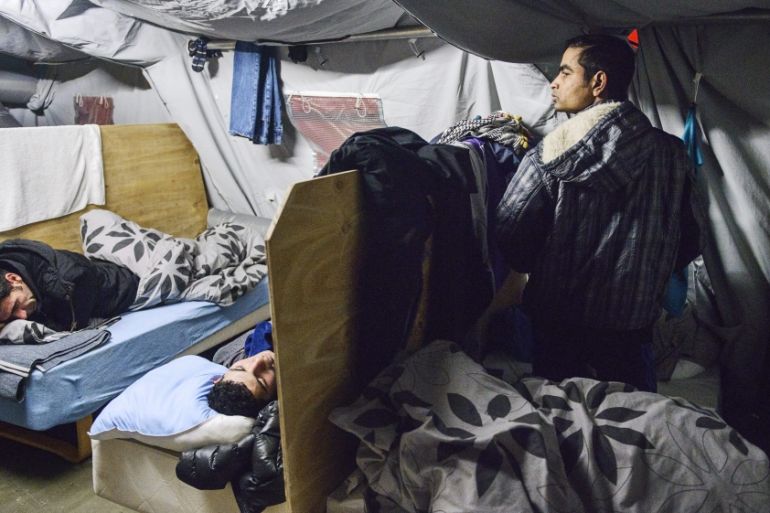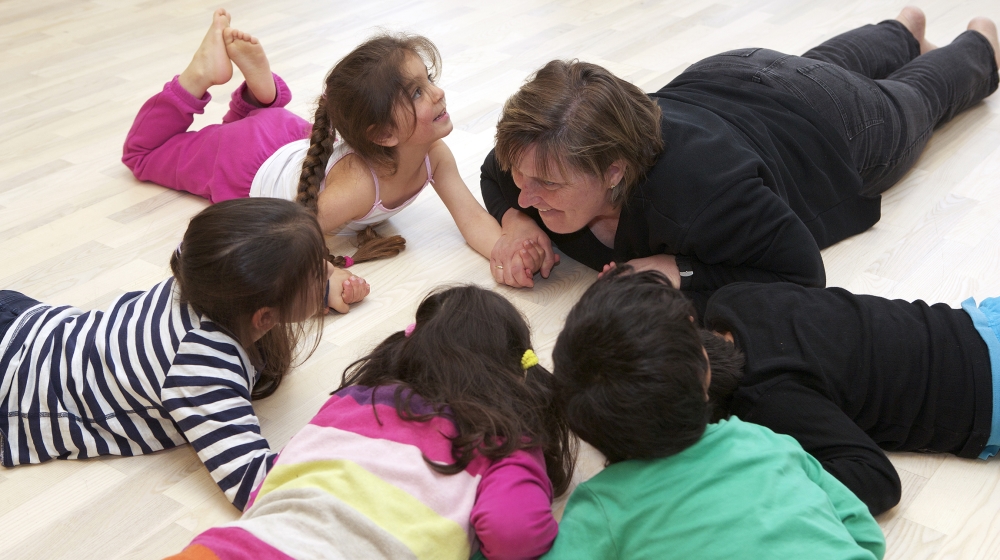Denmark refugees feel left out from lauded coronavirus policies
Asylum seekers and migrants say progressive policies do not apply to them, as they face financial woes amid pandemic.

Aarhus, Denmark – For Daniel Christiansen, lockdown measures amid the coronavirus measures simply mean another form of isolation.
Originally from Iraq, he lives in one of Denmark’s two udrejsecentrene – “departure centres” for rejected asylum seekers.
Keep reading
list of 4 itemsMexico’s teachers seek relief from pandemic-era spike in school robberies
‘A bad chapter’: Tracing the origins of Ecuador’s rise in gang violence
Why is the US economy so resilient?
The Kaershovedgard facility in the country’s northwest is located just over seven kilometres (four miles) from the nearest shop, has no public transport access, and houses people like him, whose applications for asylum have failed. Some are separated from their families.
Police control who enters and leaves.
While the centre’s activities and common spaces have closed as part of lockdown measures implemented on March 11 as the country battles the coronavirus pandemic, Christiansen says he does not feel life has changed.
“We are already [outside of] society,” he told Al Jazeera, explaining that they are not allowed to learn Danish, earn money, or even cook their own food.
Christiansen’s sense of abandonment grew as Denmark’s response to the pandemic was hailed worldwide as a leading example, especially its economic measures.
The social democratic welfare state ordered the closure of public institutions and shut its borders relatively early on. It was one of the first countries which offered to pay 75 percent of private companies’ employee salaries to avoid mass layoffs.
While these measures were extensive, uncertainty mounted among refugees and migrants.
![Coronavirus impact on refugees [FREE SIZE]](/wp-content/uploads/2020/04/5c053c27ccad4c48a8d99e80f959e824_7.jpeg)
Shakira, who did not want to share her last name, stays at another departure centre north of Copenhagen, Sjaelsmark, with her 11-year old son who has grown up shuttled between various asylum and detention centres.
As a result, he suffers from depression, and especially fears police.
Shakira’s days now are spent helping her son with his school lessons online.
“It’s so hard,” she told Al Jazeera. “If you have a child, it’s really, really very hard … The children here have been through a lot of trauma.”
Social distancing, meanwhile, is almost impossible.
Shakira lives close to other families, and while common spaces and group activities have been shut down, residents continue to share bathrooms like at Kaershovedgard.
“I’m worried if this coronavirus comes in the centre,” she said, explaining she was unsure whether adequate medical treatment would be provided. “What is going to happen to our lives? Are we going to die?”
While the Danish Foreign Affairs and Integration Ministry has not issued information about coronavirus-related protocols at specific departure centres, it has made broad statements about measures at asylum centres overall, such as banning the use of public transport and travel between facilities.
“The whole community must try to avoid the spread of infection,” Foreign Affairs and Integration Minister Mattias Tesfaye said in a press release. “That is why we have also taken a number of steps and initiatives in the area of asylum.”
By the time of publishing, Tesfaye had not responded to Al Jazeera’s request for comment.

Some refugees and migrants have received support from civil society.
Charlotte Slente, secretary-general of the Danish Refugee Council (DRC), told Al Jazeera that the group provides language training, mentoring and advisory services to people online.
“Many of the refugees that have come to Denmark [have had] traumatic experiences,” she said. “They might be emotionally, mentally … affected by the situation. [They have] a bigger need for continuing normality than the rest of us.”
Christiansen and Shakira have had their claims to seek asylum rejected, but both claimed to have escaped dangerous situations in their home countries.
While Shakira did not want to give details, Christiansen says he would have been killed had he stayed in Iraq.
Anne La Cour, who leads the Danish Red Cross’s asylum department, said when newcomers arrive, they are taken to the Cross’s reception centre and are required to isolate for two weeks, “same as if a Dane came home from a foreign country”.
La Cour said so far there have been no infections at these centres. But should there be, she is confident an outbreak could be controlled due to record-low numbers of asylum seekers to Denmark in recent years.
Sharing information about how to limit an outbreak, in as many languages as possible, was a key priority, said both La Cour and Slente.
Meanwhile, the Danish Green Card Association, which advocates for migration, is raising awareness about how the pandemic could affect immigrants on temporary visas, green card holders, and those applying for permanent residency (PR).
People in these groups need to show a minimum annual income in order to extend visas or apply for PR, but with income lost due to coronavirus shutdowns, many risk being unable to do so.
Naqib Khan, the organisation’s spokesperson, said the government’s economic plan does not include those who have been fired, an unfortunate reality for many migrants.
“It has hit the immigrant community here in Denmark a lot,” he told Al Jazeera. “And it has consequences for years to come.”
A Pakistani mother of two young sons living in Copenhagen, who wished to remain anonymous, told Al Jazeera that two of her three employers have been unable to keep giving her part-time work with public institutions closed down.
The loss of work means she no longer meets the income requirement for PR.
“I know all the workers like us [are having] the same problem,” she told Al Jazeera. “All of us are struggling.”
Khan has called on the Danish government to waive at least three months of the annual income requirement for these immigrants.
Countries have been varied in their responses to migration issues since the start of the pandemic.
Portugal temporarily granted migrants and asylum seekers full citizenship rights. Canada said it would turn away asylum seekers at the Canada-US border. In the US, a federal judge ordered the release of migrant children in federal detention due to fears of coronavirus spreading.
“Our main advice is that the refugees that get displaced are taken into account in international response plans,” Slente said.
In recent days, Denmark, where more than 4,500 people have been infected and 179 have died with coronavirus, has signalled it might ease lockdown restrictions to avoid economic recession.
Back in Kaershovedgard, Christiansen said he hopes Danes who have been in self-isolation remember people like him who will continue to be “forcibly isolated” when their lockdown ends.
“Maybe they can come to think about [the pain we feel],” he said, “when they themselves cannot do anything and are just sitting in the house.”